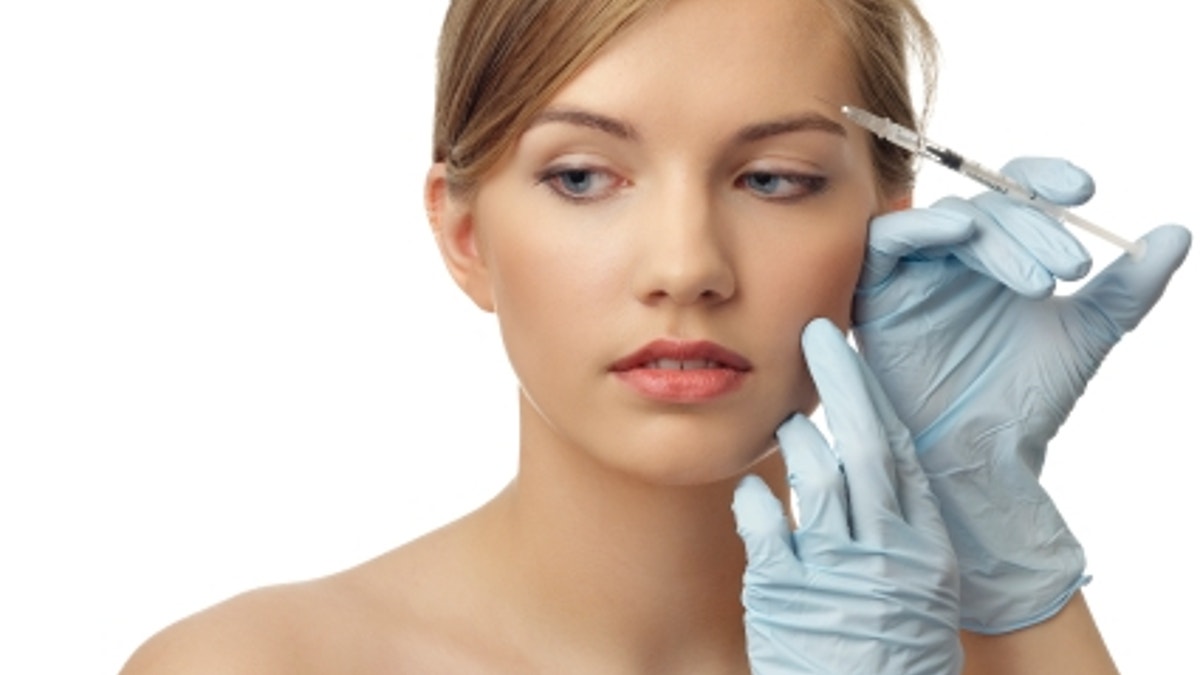
Picture this: your appointment with your therapist is coming to a close and instead of writing you a prescription for an antidepressant, he gives you an injection of Botox and sends you on your way.
This, experts say, could be the future of treatment for depression.
Currently used off-label for depression, Botox is in phase 2 clinical trials for FDA approval.
“Once it becomes FDA-approved, hopefully we will have mental health professionals using it,” said Dr. Eric Finzi, a board-certified dermasurgeon in the Washington, D.C. metro area who pioneered the treatment and trains psychiatrists to use it.
In a study released last year, Finzi and Dr. Norman E. Rosenthal, an associate professor at the Georgetown School of Psychiatry, found that 52 percent of participants who suffered from moderate to severe depression found relief from Botox injections, compared to 15 percent who received a placebo. Plus, nearly a third of the Botox patients went into remission.
Two other studies revealed the same. In fact, one published in the Journal of Clinical Psychiatry found that not only did Botox help with depression, but the effects continued even after the cosmetic changes wore off.
Finzi based his research on works by Charles Darwin and William James that discuss the facial feedback theory, which states that facial expressions influence mood.
“Whatever you do with the muscles in the face actually send a signal back to the brain and tell your brain what the state of your emotions are,” Finzi said.
For some, Botox is best
According to the Centers for Disease Control and Prevention (CDC), between 2009 and 2012, 7.6 percent of people 12 and older had depression. The National Institute of Mental Health (NIMH) says women are 70 percent more likely to suffer from depression in their lifetimes.
For some who have tried therapy, antidepressants, alternative treatments and lifestyle changes to no avail, Botox may be the answer.
Take Susan* of Washington, D.C., who was diagnosed with depression and seasonal affective disorder several years ago. She tried three different antidepressants but She had persistent headaches.
A light therapy box and cognitive behavioral therapy only slightly improved her symptoms. And when she battled cancer, mediation helped, but in recent years, the depression lingered.
“They are so many positive things in my life, that a lot of times I don’t really understand why I’m going down and why I don’t feel like my usual energetic, cheerful self,” she said.
Six years ago, Susan saw an interview with Finzi and read about his work. She made an appointment and, while she was initially hesitant, decided to try the treatment.
“When I would look at myself in the mirror, I always looked like I was unhappy and frowning. After I started the Botox, that feeling went away,” she said.
A smoother face—and happiness
Compared to antidepressants, “Botox is hands down much safer and more reliable,” said Dr. Doris Day, a board certified dermatologist in New York City and RealSelf Chief Aesthetic Advisor.
Over 20 years of injecting patients with Botox for cosmetic reasons, Day said that patients— who did not have depression— told her they felt happier.
“As it wears off, they actually need to come back to have it. They feel it before they even see the lines and wrinkles,” she said.
The future of Botox treatment for depression
Depression is complex and difficult to treat. Although Botox may not be the cure-all some people are hoping for, experts say it could be a good adjunct treatment to other forms of therapy.
“There are many people who do not respond to the current therapies. So if we can have one more therapy that helps some people, that’s fantastic,” Finzi said.
*name has been changed




















